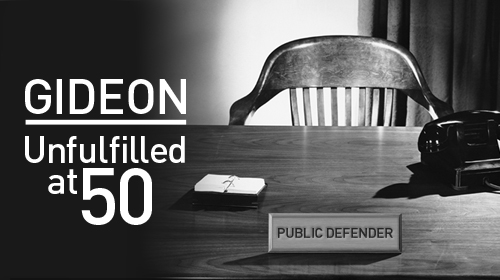
From an early age most of us are told – if you are in danger, call the police for help. However, towns and cities across the country are sending the opposite message – call for help and you could lose your housing.
This was precisely the message in East Rochester, New York, received the night her ex-boyfriend arrived at her home, uninvited, and repeatedly attacked her. Fearing for her mother's life, the victim's daughter called 911. But when police arrived, they warned the victim that, pursuant to a local nuisance ordinance, her third call for help would result in her eviction.
Following this incident, her ex-boyfriend continued to harass and to stalk her with impunity. The victim felt she had no choice but to endure threats and violence because she knew her next call to police could mean the loss of her home, making her family even more vulnerable.
Alarmingly, this situation is a reality in a growing number of communities. Countless municipalities have enacted local nuisance ordinances that penalize properties when they are the site of a certain number of calls for police services or alleged criminal activities. These laws typically make no exception for crime victims or individuals who call the police out of legitimate fear or need. Property owners are then pressured to evict the tenants at issue or face stiff penalties.
Today, victim advocates, community members, and domestic violence survivors from across New York State have congregated in Albany with to ask the legislature to address systemic barriers to freedom from abuse. Essential to this agenda is to stem nuisance ordinances' detrimental impact throughout the state.
The bill, which passed in the New York Assembly, clarifies existing rights to seek emergency aid and prohibits municipalities and landlords from penalizing people because they called for or received police services that they believed they needed.
Passage of this bill is because while nuisance ordinances may seek to deter crime and disorder, they often hurt innocent people.
One recent showed that nuisance ordinances have been enforced against domestic violence far more often than the drug, weapon, and property offenses that municipalities intend to target. They also can affect anyone whose home is the site of disturbances they cannot control, such as aparent whose child's school bullies harass the family at home or a tenant who reports assaults against a neighbor. By chilling reporting of crime and leading to evictions of vulnerable individuals, nuisance ordinances in fact undermine public safety.
The New York Senate now has the opportunity to ensure that nuisance ordinances do not undermine efforts to provide for law enforcement intervention, victim safety, and offender accountability. We are all less safe when our neighbors are scared to call 911 in an emergency situation. It is time to guarantee that here in New York no crime victim will face losing her home on account of seeking help from the police.
Learn more about the ACLU’s litigation against similar ordinances and other civil liberty issues: Sign up for breaking news alerts,, and .

